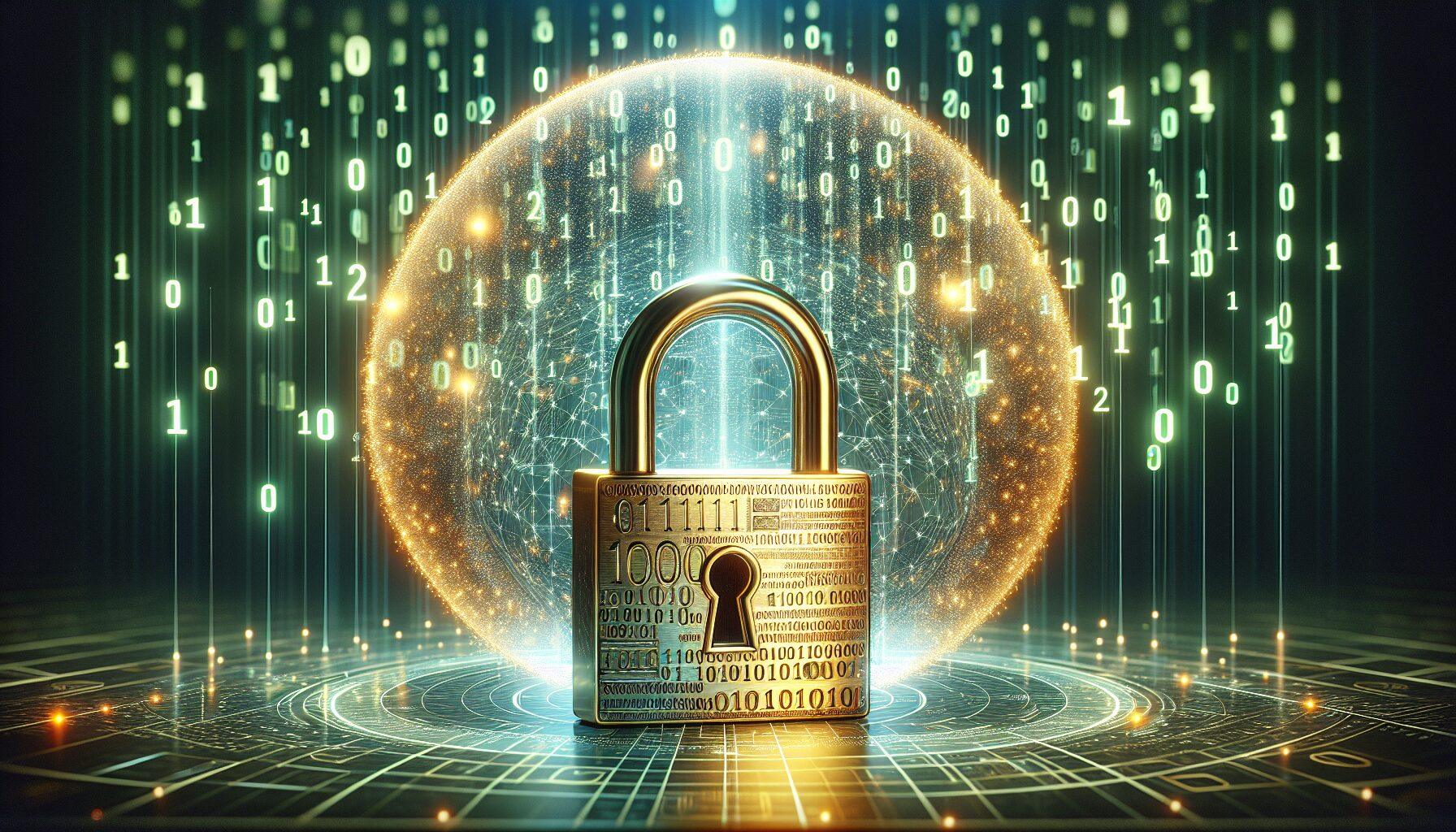Data Protection
In the era of AI personalization, the safeguarding of personal data and robust Data Protection measures have become more critical than ever. As algorithms learn to tailor experiences and content to individual preferences, they simultaneously collect vast amounts of personal information, ranging from browsing habits to purchase history.
This data, if not properly protected, can be vulnerable to breaches and misuse, leading to privacy violations and potential identity theft. Consequently, companies must implement robust data protection strategies to ensure that the personalization benefits do not come at the cost of consumer trust and security.
Hey there! Ever questioned what the entire buzz around information safety and privacy is all about? Let’s break it down like we’re chatting over espresso, minus the caffeine jitters!
Understanding Data Protection and Privacy

Data protection and privacy are like the secret ingredients in your favorite cookie recipe – they’re essential, but not always visible to the naked eye. Just like how you wouldn’t want someone sneaking into your kitchen to swipe your secret recipe, you wouldn’t want companies or cyber snoops getting their hands on your data without your say-so.
It’s all about controlling who has access to the bits and bytes that make up your digital identity – from your shopping habits to your latest binge-watching obsessions. So, let’s stir in some knowledge and bake up a better understanding of how to keep your data under lock and key.
So, information safety and privacy—appear like one thing out of a spy film, proper? In a nutshell, it is all about holding your information secure from prying eyes and making certain your private information is not shared without your say-so. Think of it like having a lock on your bedroom door. You would not need simply anybody waltzing in, would you?
Data Protection vs. Privacy: What’s the Difference?
| Term | Definition |
|---|---|
| Data Protection | This is all about safeguarding your information from unauthorized entry. It’s like a digital safety guard defending your stuff. |
| Privacy | This defines who will get to see your information and what they will do with it. You resolve who will get the VIP entry to your data! |
Why Should You Care?
In today’s digital age, where data breaches and identity theft are more common than ever, caring about AI personalization isn’t just about convenience—it’s a necessary step in protecting your digital identity.
By customizing your privacy settings, you’re not only keeping your personal information out of the hands of cybercriminals but also ensuring that your online experience is tailored to your preferences and needs. Think of AI personalization as the ultimate tool in creating a secure, yet intimately customized digital fortress around your life.
Imagine this: You’re at a celebration, and somebody swipes your cellphone to take a look at your images without asking. Awkward, proper? That’s the form of what occurs when your information is not protected. In this digital age, our lives are so intertwined with know-how that holding our information secure is essential.

Quick Tip!
Fun Fact:According to [Wikipedia], information privacy is properly acknowledged by many international locations worldwide. Protecting it is as vital as guarding your bodily property!
Real-Life Examples
1: Target’s Data Breach: In 2013, Target suffered a massive data breach where hackers gained access to the personal information of approximately 70 million customers. This incident not only resulted in a loss of consumer trust but also led to significant financial damage, with the company spending millions in legal fees and settlements.
It highlighted the critical need for robust cybersecurity measures and personalized AI systems that can adapt in real-time to detect and prevent such intrusions. Remember when Target had a large information breach in 2013? Millions of bank card particulars had been compromised. Oops!
2: Facebook-Cambridge Analytica Scandal: The Facebook-Cambridge Analytica scandal was a wake-up call for the digital world, highlighting the vulnerability of personal data in the age of social media. In this notorious incident, data from millions of Facebook users was harvested without consent and used for political advertising purposes.
It underscored the urgent need for AI that not only personalizes content but also fiercely guards user privacy, ensuring that personalization does not come at the cost of personal security. This was a traditional case of misusing private information for political positive aspects. Privacy? What privateness?
How to Protect Your Data
In today’s digital age, the importance of safeguarding our data cannot be overstated. As AI personalization becomes more pervasive, it is paramount that we implement robust security measures to protect our sensitive information.
By utilizing advanced encryption techniques, regularly updating privacy settings, and being vigilant about the apps and services we grant access to our data, we can create a safer online environment where personalization and privacy coexist harmoniously. Wanna hold your information as secure as your grandmom’s secret cookie recipe? Here are some ideas:
1: Use Strong Passwords: Absolutely! Just like a solid lock keeps your treasures safe, a strong password acts as the first line of defense against digital marauders. Think of your passwords as the guardians of your online realm, complex enough to perplex the most persistent of cyber riddlesmiths.
It’s essential to mix it up with a cocktail of letters, numbers, and symbols, making sure it’s a concoction so unique that not even your cleverest acquaintance could guess it on their first try—or their fiftieth! Mix it up with numbers, symbols, and uppercase letters. Password123 simply will not minimize it!
2: Enable two-factor authentication (2FA): 3: Regularly update your passwords: Just like your wardrobe, your passwords need a seasonal refresh. Set a reminder to change your passwords every few months to throw off any digital trail-sniffers.
It’s like playing hide and seek with your data, and you’re making sure you’re always a few steps ahead of anyone who might be “it.”It’s like having a bouncer check IDs at your information membership.
3: Be Wary of Phishing Scams: 4: Educate Your Inbox: Just like you wouldn’t open your door to a stranger, don’t open emails from unknown senders. These digital charlatans are crafty, often disguising themselves with familiar logos or convincing language.
Stay sharp and question everything that lands in your inbox. If an email asks for personal information or prompts you to click on a mysterious link, it’s likely a phishing attempt trying to reel you in.
Keep your virtual drawbridge up and don’t let the invaders storm your cyber castle. If it appears fishy, it in all probability is. Don’t click on suspicious hyperlinks, even when they promise free pizza at all times.
4: Regular Software Updates: 5: Embrace Strong, Unique Passwords: In the age of digital skirmishes, your passwords are the valiant knights guarding the gates to your online kingdom. It’s imperative to concoct a potent potion of letters, numbers, and symbols, creating passwords that are as unguessable as the riddles of Sphinx.
Avoid the cardinal sin of recycling passwords across multiple sites; if one fortress falls, you don’t want the enemy to have the keys to your entire empire. Regularly updating your passwords also keeps potential digital marauders at bay, ensuring your defenses are always a step ahead. Keep these apps and programs up to date. It’s like getting a flu shot at your tech.
Interactive Corner: Are You Data-savvy?
Take our fast quiz:
- Do you employ the identical password for several accounts?
- Yes
- No
- Do you assume earlier than clicking on hyperlinks in unknown emails?
- Always
- Sometimes
- Never
- How often do you replace your software program?
- Regularly
- Occasionally
- Rarely
(Find the solutions on the end of the article!)

Call to Action
Understanding the importance of cybersecurity in the age of AI personalization is paramount. As artificial intelligence continues to curate our digital experiences, tailoring content and advertisements to our likes and dislikes, it also opens up new avenues for potential security breaches.
By staying vigilant and adopting safe online behaviors, such as regularly updating software and being cautious with unknown emails, we can enjoy the benefits of personalized AI while safeguarding our personal information.
Feeling a bit extra enlightened about information safety and privacy? Awesome! Now, why not take the subsequent step and secure your online presence as we speak? Trust me, in the future, you’ll thank me for it.
FAQs
Q: What is the principal aim of knowledge safety?
A: The principal aim of data security is to protect our personal information from unauthorized access, use, disclosure, disruption, modification, or destruction. It’s about safeguarding our digital footprint and ensuring that our sensitive data—be it financial details, personal identifiers, or even our browsing habits—remain confidential and intact.
By prioritizing data security, we’re not just defending against potential cyber threats; we’re also preserving our right to privacy and maintaining trust in the digital ecosystem that’s become an integral part of our daily lives. To make sure that your private information is not accessed or used without your permission.
Q: How can I enhance my information privacy?
A: To bolster your information privacy, it’s crucial to start by understanding the privacy settings on all your devices and online accounts. Take the time to customize these settings to your comfort level, opting out of data sharing when possible.
Additionally, be vigilant about the permissions you grant to apps and services; only provide the necessary access needed for functionality. Regularly updating passwords and using multi-factor authentication can also significantly reduce the risk of unauthorized access to your data. Use robust passwords, allow 2FA, and be cautious along with your private data online.
Q: Why are information breaches harmful?
A: Information breaches are harmful because they can lead to a multitude of negative consequences, including identity theft, financial loss, and reputational damage.
When sensitive data falls into the wrong hands, it can be misused in various ways, such as opening fraudulent accounts, making unauthorized transactions, or even selling the information on the dark web.
Moreover, for businesses, a data breach can erode customer trust and loyalty, potentially leading to significant revenue declines and long-term harm to the brand’s image.They can result in identification theft, monetary loss, and a complete lot of problems.
Wrap-Up
To mitigate these risks, AI personalization must be implemented with robust security measures in place. Encryption, regular security audits, and strict access controls are essential to protect sensitive data from unauthorized access.
Furthermore, transparency in AI algorithms and ethical data handling practices are crucial to maintaining user trust, ensuring that personalization enhances the user experience without compromising privacy or security.
Congratulations! You’ve simply leveled up on the planet of knowledge, safety, and privacy! Keep the following pointers in mind, keep knowledgeable, and you will be navigating the digital world like a professional.
For extra insights, try Cloudian’s comprehensive guide.
As you embrace AI personalization, it’s paramount to maintain a balance between convenience and discretion. By setting clear boundaries on how much personal data you’re willing to share, you can enjoy the tailored experiences AI offers without feeling exposed.
Always remember to periodically review and adjust your privacy settings across different platforms to ensure you’re only sharing what you’re comfortable with – this is your digital footprint, after all, and you should have the final say in how it’s used.
Remember, defending your information is similar to holding your home locked. Safe and sound, simply the best way it needs to be!


